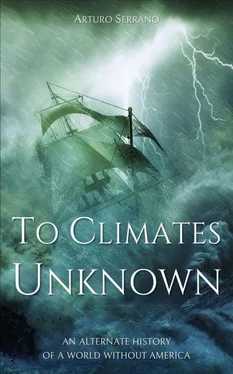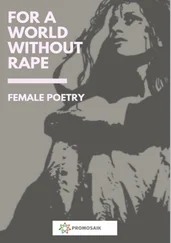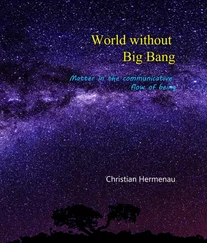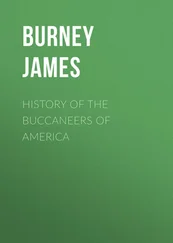“Well, you have me here,” said the king. “I’m listening.”
Kathrine looked around the gallery, looking for a tool she could use to demonstrate her message. Curiosities large and small were showcased in no obvious order; her eyes passed over a porcelain teapot, an unreadable papyrus, a jade mask, a marble nymph, a set of black chess pieces, several full armors and an impressively-sized bookcase, until they rested on a globe model of the world. She approached it and motioned for Kristina to join her. “Is this object precious?” she asked, showing her dirty hands.
“Information is worth more,” replied the king.
That made Kathrine feel more at ease, and she rotated the globe until Asia was exposed. “The Canutic Empire has been building strongholds all over the northern coast of Asia,” she began, running her finger over the area.
“That’s to be expected. Denmark uses the Arctic to trade with China.”
“I didn’t say trading posts; I said strongholds. Starting with Mangazeya, Danish rule has been spreading over the northern coast in such a way that it can by now be said this entire region has been added to the Danish crown.”
Kristina looked at the world, making a conscious update of her model of it. “You’re saying that all these places have become… provinces of the Canutic Empire?”
Kathrine nodded, and her hand made a sweeping motion over north Asia. “There are very few natural defenses here. Barely a mountain for thousands of miles. I’ve intercepted reports that describe war plans against the tribal chiefs of the steppes. Frederik wants to rule everything north of China.”
“Does he plan to attack China?”
“That is unlikely. No one has survived land warfare against the Great Ming since the new emperor took charge.”
It didn’t take much intuition to interpret Kristina’s face at that moment. What had started, not without a touch of presumptuousness, to be called the “loss of China” was a topic that caused sadness and anger throughout Christendom, but because it had been the Jesuits who had “lost” China, those feelings were more intense among Catholics. “I see,” she said at last. “So Frederik is staying close to the north coast. Is there any economic reason to want those lands?”
“We’re not sure yet. One never knows where a valuable mine will appear. What we do know is that roughly half of that territory is forest.”
“Inhabited?”
“Very sparsely.”
“What does he want with it?”
“The first reason, and the simplest, is that he’s building a navy. Ships need wood. With that much forest, Denmark could sustain a world-spanning fleet.”
“Let him try,” said the king. The look on Kathrine’s face made her chuckle, and she explained, “Even if what you say is true, Frederik won’t be the first ruler who dreams of taking more than he can control. Ambition of such size always ends in tragedy. Long ago, it happened to Alexander; it will happen to him.”
Leonora intervened. “I’m sorry, but Your Majesty is not seeing the full picture.”
“Is that so? Please enlighten me.”
She took the globe from Kathrine’s hands and tilted it so that all of the Arctic was visible. “Greenland and Iceland are all but Danish colonies. On paper, Scotland is an allied power, but it’s completely dependent on Danish support. And there’s the North American colony, centered on Munkhaven, but the plan is to expand Nova Dania to cover every possible piece of frozen land where the fabled Vinland could have existed. Does Your Majesty see the problem now? Once he’s secured control over both coasts, plus Greenland, the entire Arctic will become an inner sea of the Canutic Empire.”
Leonora was trembling at her own words, but Kristina was still unimpressed. “I fail to see the strategic usefulness of conquering all that ice. You can’t grow crops on ice; you can’t build roads on it; you can’t feed it to cattle. Either your information is mistaken or Frederik is an incapable planner.”
Kathrine pointed at the windows through which the heat of summer inundated the gallery. “Doesn’t Your Majesty think this summer is quite warm?”
The king shrugged. “Yes, summer is warm. Your point?”
“It shouldn’t be this warm, not here in the Nordic countries.”
Kristina considered the idea and said, “Prove it. If you have one of Drebbel’s tubes, show me comparisons from one year to the next.”
Leonora’s heart almost stopped at the mention of Drebbel, but she saw what the king meant. Among Cornelis Drebbel’s many inventions, one of the most famous was a type of thermometer that functioned with tinted water. “We haven’t measured the heat, and maybe we should have. But we have seen the changes that are causing summers to get worse.”
That assertion made Kristina laugh. “So, not only is Frederik attempting to rule the oceans, but he’s also gained mastery of the sun?”
Kathrine was losing her patience. “Your Majesty is known for being perfectly informed about everything that happens in Europe. How many times has Holland been flooded this year?”
“What a question! It would be easier to count how many days it hasn’t been flooded.”
“That’s right. The Dutch have many virtues, and my favorite is how organized they are. Their historical records show clearly, year by year, that floods used to happen less often. Something very bad is happening to the sea.”
“And you want to convince me that this is somehow Frederik’s fault, too.” Kristina paused to organize her thoughts, and said, “You wouldn’t have come to see me if Frederik were indulging in a harmless whim. You have found something bigger than a cartographic novelty. What is this about? What does he want with all that ice?”
Leonora blurted, “Think no ice.”
All Kristina could say to that was a “Huh?” that prompted Kathrine to close her eyes and gather her strength before completing her act of treason.
“As may be obvious from my name, I’m the daughter of Jens Munk. I’ll tell Your Majesty a thing about my father: he hated the cold. I don’t blame him; three times in a row he was detained by winter in the middle of nowhere. When he returned home, he became immensely rich, and our family regained its titles, but he was a shadow of a human being. He’d lost all his teeth; his limbs had been chewed and spat out by frostbite. Until his dying day he professed a dream more ambitious than opening the Arctic: he wished to see the day when the polar region could be traversed freely, when no one would have to endure the hardships of winter ever again.”
“And my father, the king, adopted his vision,” added Leonora. “That’s why Denmark has been taking over frozen lands no one else cares to claim. It’s executing a large-scale operation to unfreeze them. That’s where the north Asian forests come into the picture: they are serving a double purpose. Those strongholds we mentioned along the coast are being kept warm by gigantic bonfires that burn day and night. Thousands of them, fed by a seemingly endless supply of wood, burning continuously for the past twenty-five years.”
The image of a perpetual line of fire at the northern extreme of the world filled Kristina’s imagination with stunned awe. “Is Frederik hoping to make the north more livable?”
Kathrine swept her hand over the globe. “He intends to melt it. Once the floating ice has vanished, the route to China will be navigable by normal ships.”
“The north of Asia,” added Leonora, “may be unusable for now. But under the endless snow, there’s endless land. If my brother succeeds in exposing it, he’ll become one of the world’s richest landowners.”
Kristina asked Kathrine, “Is Nova Dania on fire too?”
Читать дальше












